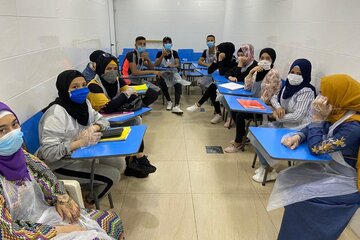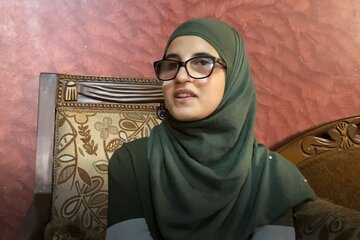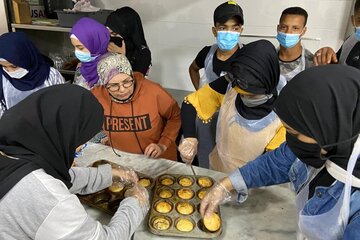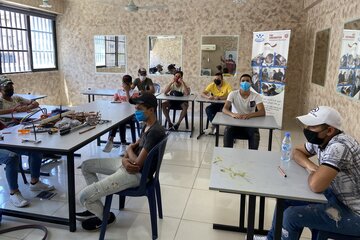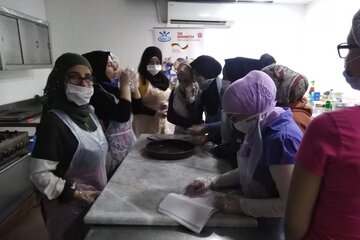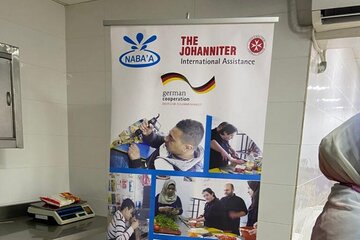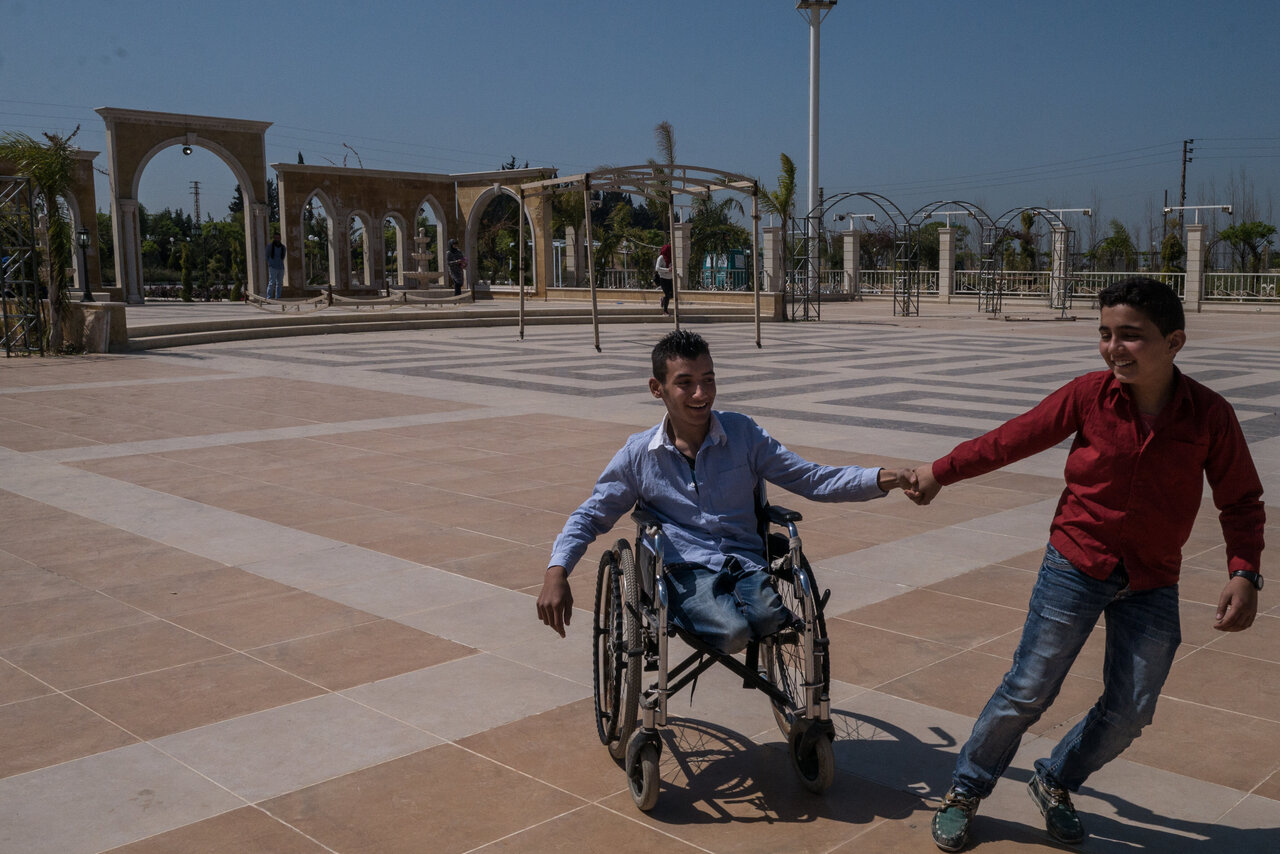Lebanon: New Horizons for Young People
Berlin / Sidon, 10 July 2020
An ongoing economic crisis and growing unrest have destabilized the situation in Lebanon in recent months. The COVID 19 pandemic has further exacerbated the situation. Especially young people who have already been disadvantaged by disability or due to refugee status, are the main victims of this development. A project that supports them was restarted in June. It enables 540 young people, most of whom experience only social exclusion, to receive vocational training.
Aya is a 21-year-old young woman. Her hearing is poor and she has problems in speaking. "At the beginning of the courses she kept away from her other classmates and did not take part in classes or other activities. She was very shy," remembers her teacher. That was in late summer 2019, when Aya joined a socio-economic project of Naba'a, a partner organisation of Johanniter in Lebanon. She was not alone with her situation.
"At the beginning, all trainees were extremely introverted and they suffered from a lack of self-confidence," adds her colleague Imam, who is responsible for psychosocial support in the project. "With the training units, activities and individual sessions for trainees with psychological impairments, the situation improved visibly". The project and the team of specialists from Naba'a succeeded in strengthening the young people who had previously met with only rejection, by increasing their self-esteem and recognition.
The blueprint for this was a previous project that enabled 120 young people to receive training between 2016 and 2018. After graduation, not only did 40 percent immediately find employment as hairdressers, computer specialists or mobile phone technicians, but they also organized themselves into youth groups and drew attention to themselves and their concerns. Since June 2018, the second cycle has been taking place for 540 young people in Palestinian refugee camps. In addition to vocational training, the young people take part in sessions that teach them important social and life skills.
"Aya is enjoying the training today, she gets ready early in the morning to go to class," says Aya's mother proudly. Her mental state is good and she likes her teacher and her classmates. Every morning she travels with her social worker Souad in the project bus to the training centre, where she joins her class of 15 young people with and without disabilities. Aya is training there in catering at the "Sidon Technical Institute" (STI) in Sidon, not far from the Palestinian refugee camp Ain el Helwe, where she lives with her family. When Aya comes home, she likes to apply her new knowledge together with her family in the kitchen. According to her mother, the economic situation is bad, and she hopes that with Aya's support the situation will improve a little bit. That is what Aya wants, too. After the graduation, she wants to help her father in the small candy store he owns, which is an imortant economic basis for the family.
The project is financially supported by the German Federal Ministry for Economic Cooperation and Development (BMZ).
